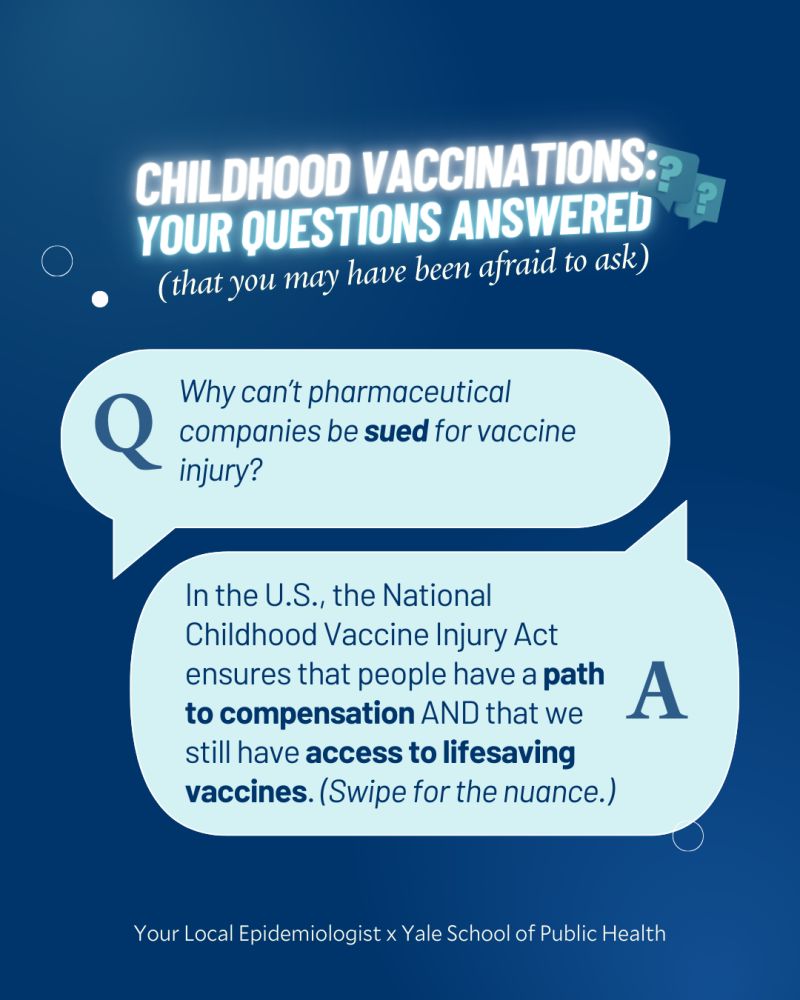Your employees have 💉 questions.
More in this week's news: Legionnaires' in NY, recalls, and wildfire smoke (again).
Health News:
- The Legionnaires’ outbreak in NY is up to 22 cases and one death. (ABC)
- A new study finds that respiratory infections like the flu may increase the risk of waking dormant cancer cells, though more research is needed. (Newsweek)
- U.S. vaccination rates are still dropping and kindergarten exemptions have hit another record high. (AP)
- The Africa CDC warned that Guinea’s mpox outbreak is spreading exponentially. (CIDRAP)
- Humans are likely inhaling 100x more microplastics than previously thought. (Hill)
- Wildfire smoke and unhealthy air have blanketed the Midwest this week and may spread to the Northeast this weekend. (Washington Post)
- The Senate confirmed Susan Monarez as the new CDC director. (CBS)
- Cambodia announced its 14th human H5N1 case of the year, in a hospitalized man who recently slaughtered chickens. (CIDRAP)
- Over 1,000 pounds of cooked frozen ground beef from Ada Valley Meat Co. was recalled due to possible metal contamination. (CBS)
- Meanwhile, a major packaging mix-up led to vodka seltzers being mislabeled as Celsius energy drinks. (NPR)
Mental Health & Substance Use News:
- Nicotine vaping is up slightly, while heavy drinking is down slightly over the past few years in the U.S. (MedPage Today)
- California’s governor signed an executive order this week aimed at supporting the mental health of men and boys. (AP)
- Synthetic opioids called nitazenes, stronger than fentanyl, are cropping up in street drugs and gray-market pharmaceuticals, killing hundreds each year. (WSJ)
If you or someone you know may be considering suicide or need help, call 988 or message the Crisis Text Line by texting HOME to 741741.
Best Questions:
What’s the Vaccine Injury Compensation Program (VICP) and why is it in the news?
The VICP is getting renewed attention after the HHS announced a plan to revamp the program, calling it a failure at fairly compensating people injured by vaccines.
Congress set up the VICP 1986 to pay children and pregnant women who suffered rare but serious side effects from vaccination, while also protecting manufacturers from liability. The idea was that if these companies were getting sued for every rare side effect, it might not be financially viable for them to continue producing vaccines at all, so the federal government stepped in to cover those costs.
People on both sides of the aisle agree the program is inefficient and understaffed. MAHA movement leaders say it doesn’t hold manufacturers accountable enough, and some are hoping to expand it so more people can file COVID-related claims.
Some public health officials worry that changes could legitimize unproven claims and further erode trust in vaccines. Many believe VICP is still the best option for families, since it avoids lengthy, expensive lawsuits against massive pharma companies.
Regardless, we don’t expect this to affect vaccine availability this year, or even next. No overhaul has been detailed yet. But in the long run, if vaccine makers face more liability, it could influence whether they continue developing new vaccines. Either way, it highlights how national conversations around vaccines continue to impact public trust.
Sources: The Hill, NY Times
Do doctors get paid an incentive for vaccinations?
Nope. Doctors do not get incentives from the pharmaceutical industry for vaccinations. In fact, most pediatricians say they break even or lose money from vaccines. That’s because it’s so costly to buy it, store it, and give it out. From special refrigerators, to guessing how much supply is needed to meet demand, to doses that can cost up to hundreds of dollars, the costs can add up. Up to a quarter of family doctors and 12% of pediatricians stopped offering vaccines because the costs were so high.
In some places, there are programs through the insurance company that reimburse pediatricians if they hit certain metrics, like preventive screenings and other steps that help reduce insurance costs by keeping people healthy. Vaccine uptake is one of those metrics, but the payments are usually quite small. They’re usually a small fraction of what insurance companies pay to a clinic, not a huge bonus, and not based on vaccine uptake alone.
The good news: family doctors are still one of the most trusted sources of health information, and knowing that they’re not making money on vaccinations should help bolster that trust.
Best Read:
You might be sick of hearing about vaccinations…honestly, we are, too. But the truth is that your employees have questions, and ignoring them, offering pleasantries - or worse, ridiculing them - doesn’t help anyone.
We love this collaboration with the Yale School of Public Health and Katelyn Jetelina from Your Local Epidemiologist to answer the thoughtful questions of real parents who want nuanced answers about vaccines. We leaned heavily on this resource for our answers to today’s best questions, and encourage employers to use it to answer your own questions or your employees’. It’s available in English and Spanish:

Childhood Vaccinations Fact Sheet | Yale School of Public Health & YLE